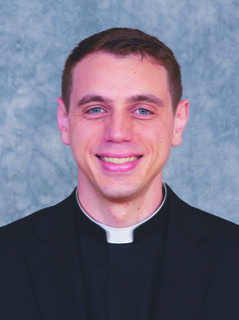
Bishop Paprocki has confirmed hundreds, probably thousands of young Catholics in our diocese since he arrived in Springfield nearly a decade ago. He always has the Confirmandi (those to be confirmed) fill out a short survey asking questions about their faith life which he often integrates into the homily. One of the questions on this survey is, “What is your favorite Bible passage and why?” Bishop Paprocki has told me that one of the most popular responses to this question is “Noah’s ark is my favorite story because it shows that God loves animals.” While this is technically true, and God does indeed love animals because he made them, it seems to miss the point of the overall story of Noah’s ark.
The reason that Noah made the ark, which was needed to save the animals and a handful of humans, was because the world was full of wickedness. This is actually a pretty terrifying story to read in full, because it shows the depths of the sinfulness in our human race, but also offers a great sense of hope. The book of Genesis even goes so far as to say that God “regretted that he had made man on the earth, and his heart was grieved” (Genesis 6:6). As always, this passage needs to be properly understood in light of the whole Bible, and it brings my mind to the scene in the gospels when Jesus wept over Jerusalem because nobody recognized God among them.
St. Peter, the first pope, made the connection between the story of Noah’s Ark and the sacrament of Baptism in his first letter. Peter focused on the cleansing action of the flood over the entire world, which wiped out most of creation, including all but eight people. This gave Noah’s family and the whole human race a fresh start. “God patiently waited in the days of Noah during the building of the ark, in which a few persons, eight in all, were saved through water. This prefigured baptism, which saves you now. It is not a removal of dirt from the body but an appeal to God for a clear conscience, through the resurrection of Jesus Christ” (1 Peter 3:20-21). Water had the power of destruction at the time of Noah, as it does today. Every spring, the rivers in our part of the country rise and sometimes even overflow their banks, with destructive consequences for the communities involved.
In Baptism, water is given the power of cleansing from sin as it was at the time of Noah, but without being destructive at the same time. Water clearly has a central place in the baptismal liturgy, and the blessing of the water to be used during the baptism is actually a couple pages long. This beautiful prayer traces the history of how God has used water throughout the history of salvation. In creation, the Holy Spirit hovered over the water and made it holy. In flood, the water symbolized the end of sin. In the great Exodus story, the Israelites walked through the water, making it a symbol of freedom from the tyranny of sin. In Jesus’ own baptism, he sanctified all the waters of the world, and on the cross, water came out from his side along with blood to wash the whole world of its sins. Water is beautiful in its simplicity, but even in this simplicity, God has given it a great power – to wash away sin!